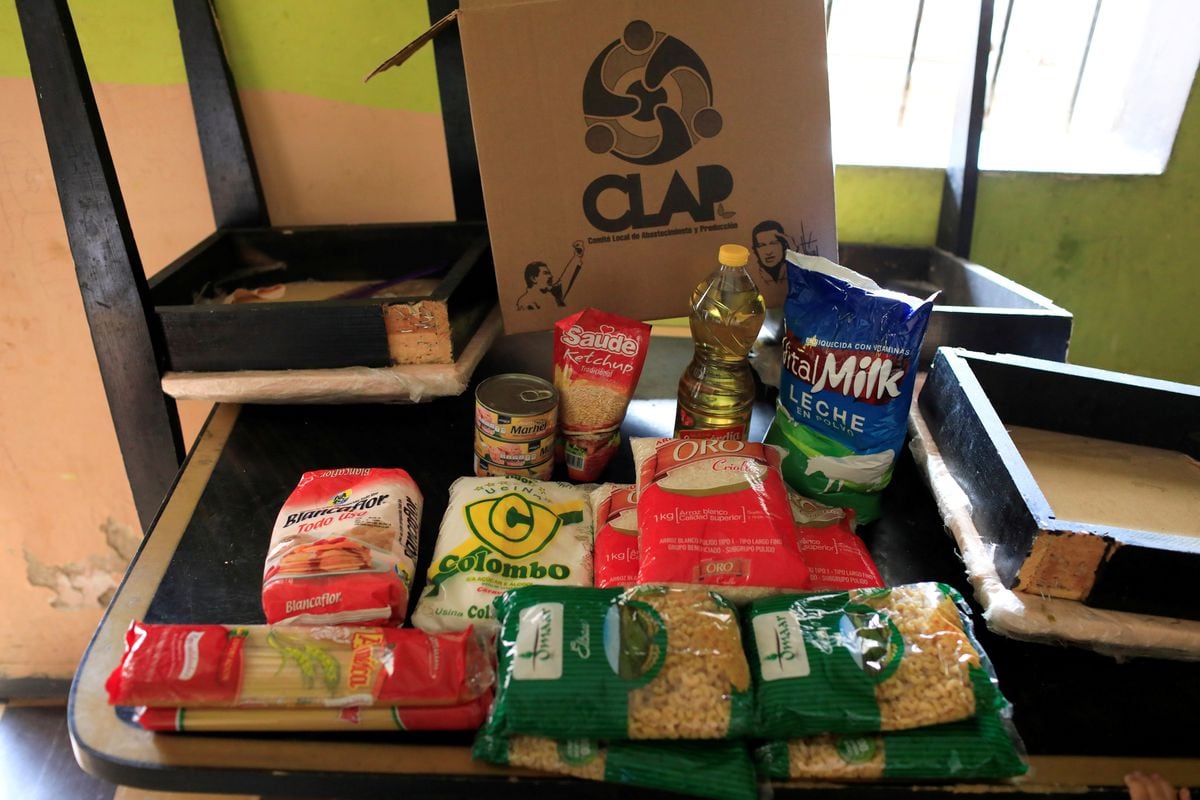A few days ago, the United Nations special rapporteur on the right to food, Michael Fakhri, stated in Caracas that the so-called CLAP Boxes (Local Supply and Production Committees in the form of food bags that the Government allocates to each family unit as assistance program), “undermine the human dignity of recipients, have become susceptible to political clientelism, and do not address the deep causes of hunger and malnutrition in Venezuela.”
The Government of Nicolás Maduro reacted irritatedly to this statement, which placed in the mouth of a UN official the same arguments of the opposition to question the procedures of the national government.
In 72 hours, with Foreign Minister Yvan Gil as spokesman, Fakhri was expelled from the country along with the 12 members of the office of the UN High Commissioner for Human Rights.
This is not the first time that United Nations experts have made severe objections to this social assistance program of Chavismo.
The CLAP funds were created in 2016 under the Government of Nicolás Maduro in the midst of a serious economic storm that resulted in historic levels of inflation and shortages, and led to the collapse of the country's social indices.
The 2018 UN High Commissioner's report also questioned the nutritional contents of the food box and expressly regretted that the delivery was covered in “tools of political propaganda and social control.”
Food bags became common after the breakdown of the resource allocation mechanisms offered by the market economy, due to military intervention in companies in industry, commerce and the transportation of products, in their attempt to regulate the prices.
The shortage of supplies at that time had, for Chavismo, CLAP as a reliable consumer alternative to capitalist speculation.
In 2017, faced with a desperate lack of goods, businessman Alex Saab specified several trade routes to allow an internationally sanctioned Maduro to build the box's offer.
Saab has several legal cases open abroad for overpricing and money laundering.
The CLAP come with the portrait of Maduro and the official slogans, the delivery modalities take into account the communal organization design that Chavismo promotes and the electoral orientation and the slogans of their activities are quite evident.
The content of the boxes – an insufficient balance of carbohydrates and canned proteins, with excess sugar – consists of a bag of rice, another of grains, pasta, corn flour, sugar, powdered milk, canned sardines, tuna or ham .
It is distributed, with its slogans, to the entire population.
Its contents have been questioned for its poor quality, although a significant part of the population continues to depend on them.
“Everyone here is still watching the stock market, of course,” says Robin Tovar, a resident of La Campiña, a middle-class neighborhood in Caracas with a population that has aged in the context of the diaspora.
“The bag arrives, but crumbs arrive.
Sometimes it is delayed.
There is no animal protein, only canned,” he adds.
Although in the urban upper-middle class areas linked to the opposition people refuse to receive the food bags, which are universally delivered, these are consumed by many middle and lower-middle sectors as a complementary income, on a liquefied budget. family that can also include remittances from abroad and local work.
Although it is a social program, with some frequency the delivery of CLAP bags is not free.
“That was before,” says Stalin Atacho, who works as a night watchman at a music conservatory and lives in Filas de Mariche, a large area of shanties located on the eastern edge of the city, in which the stock market is a fundamental part of the diet of each family.
“You have to pay for the bag, 50 bolivars each, and of course it takes time.
Up to three months have passed without giving it to me after paying.”
The payment is due, according to what Atacho relates, to the demands made by the intermediaries due to the cost of shipping the contents, among other things.
The Government has made an effort to improve punctuality in the deliveries of CLAP boxes, although delays are very common on the national map.
Some families receive more than one box per nucleus, as long as another member also works for the State.
In today's Venezuela, it is very common for working and retired sectors of the public administration to also receive transfers of food bags as bonuses, which do include beef and supplies for personal hygiene.
“There are community councils that do their job well and distribute food quickly and without problems,” says Wilkens Hernández, a resident of the Maca neighborhood, in the populous and impoverished Petare, who works as a taxi driver and occasionally as a mechanic.
“The food is not very good and there are people who profit from this, that is true, but also because they need it.
In poverty, everyone needs.”
Follow all the information from El PAÍS América on
and
X
, or in our
weekly newsletter
.

